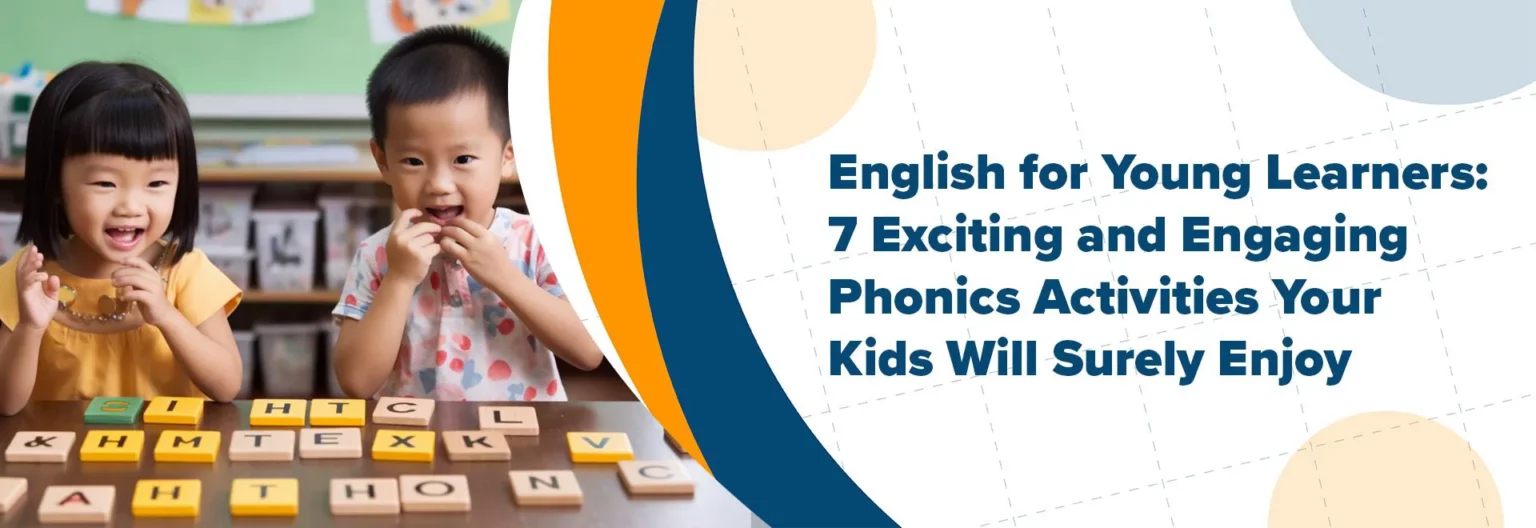
English for Young Learners: 7 Exciting and Engaging Phonics Activities Your Kids Will Surely Enjoy
English for young learners is a good start for kids who are willing and ready to explore the world of English. Learning English takes a lot of time, especially for young learners. Children need to study a lot of aspects of the English language, from the most basic like phonics to some more advanced ones like sentence construction and paragraph making, considering their age and proficiency level.
English for Young Learners: What to Expect as Parents
As parents, it’s important to have an understanding of what to expect when it comes to choosing the right English course for young learners. Enrolling your child in English for Young Learners courses can be one of the best decisions you’ll ever make to prepare them for a brighter future ahead of them.
When you get your kids to study English, you have to anticipate a lot of things. Children have short and limited attention spans, so it is not easy for you to boost their interest. They might not be interested in the lesson, so you might think of other ways to catch their attention. Teachers of English for young learners have various effective strategies that they employ in the classroom, whether your child is taking a one-to-one lesson or a group lesson.
English for Young Learners’ classes will focus heavily on developing listening and speaking skills. Activities such as listening to stories, singing songs, and engaging in conversations will be used to improve their comprehension and fluency.
While reading and writing skills may not be the primary focus for very young learners, they will gradually be introduced to basic reading activities, such as recognizing letters and simple words. Writing activities, like tracing letters or copying words, may also be incorporated.
Lessons in English for young learners are designed to be interactive and fun, incorporating games, videos, and hands-on activities. This approach helps keep children engaged and motivated to learn. This means that your child will get to enjoy their lessons while they learn English at the same time.
English for young learners is crucial for your child’s language acquisition. Set low expectations for your child. Kids will slowly learn things in English. Keep in mind that learning a language takes time and progress may vary among children. Some children may become comfortable with speaking and understanding English quickly, while others may need more time and practice. Patience and encouragement are key.
Your role as a parent is to guide them as they set off on their language-learning journey. It is always good to establish a strong foundation that would really boost their interest and learn to love and enjoy English.
Remember, the primary goal for young learners is to develop their listening and speaking skills and build a strong foundation in English. By creating a positive and supportive learning environment and maintaining consistent practice, children can make significant progress on their language learning journey.

The Role of Phonics in Children’s Language Learning
Learning English for young learners can be an exciting adventure. One fundamental aspect of learning the language is phonics, which involves the sounds that letters make and how they combine to form words. Phonics, which focuses on the relationship between letters and sounds, is a crucial foundation for their language journey.
Phonics activities play a crucial role in helping kids develop their reading and speaking skills. It serves as the foundational building block upon which their reading, writing, and overall language skills are constructed. Here are 5 basic roles for phonics in children’s language acquisition.
-
- Phonics develops reading proficiency.
Phonics is the cornerstone of reading. Understanding the connection between the sounds of spoken language and written symbols (letters) is crucial for decoding words. When children learn to associate sounds with letters and letter combinations, they can sound out unfamiliar words and gradually become proficient readers. Phonics empowers them to read not only familiar words but also new ones, fostering a sense of independence, and confidence in their reading abilities.
-
- It leads to spelling mastery.
Phonics provides children with the tools to spell words accurately. By recognizing phonetic patterns in words, they can apply their knowledge to spelling words they may not have encountered before. As they gain confidence in their spelling abilities, they are better equipped to express themselves through writing. This skill is not only essential for academic success but also for effective communication in daily life.
-
- It Enhances vocabulary.
Phonics instruction often includes exposure to a wide range of words with different phonetic patterns. This exposure contributes to the expansion of a child’s vocabulary. As they encounter and understand various phonetic rules and word families, their ability to recognize and use new words in context improves. This not only aids in reading comprehension but also enriches their language repertoire.
-
- It Improves pronunciation
Learning phonics helps children refine their pronunciation. By understanding the relationships between sounds and letters, they become more adept at articulating words correctly. This not only makes their spoken language more comprehensible but also boosts their confidence in verbal communication.
Magic Phonics: Master Correct English Pronunciation
One specialized curriculum offered in QQEnglish is Magic Phonics. The main focus of this course is to help young learners improve their pronunciation skills. This course is designed to teach young learners the process of repeating the pronunciation of letters and letter combinations.
In addition, the Magic Phonics course also includes a step-by-step reading of short exercises and long sentences to make young learners recognize the differences and connections between letters, sounds, words, and sentences.
-
- It fosters critical thinking and problem-solving
Phonics encourages critical thinking and problem-solving skills. When children encounter unfamiliar words, they can apply their knowledge of phonics rules to decipher them. This process of decoding and analyzing words fosters cognitive development and analytical thinking.
Phonics is not just a component of children’s language learning; it is the scaffolding upon which their language skills are built. It empowers them to read with confidence, write with accuracy, and communicate effectively.
The role of phonics in children’s language learning cannot be overstated. It is a foundational skill that opens the doors to a world of literacy, self-expression, and educational achievement. As parents, recognizing the importance of phonics and providing effective instruction can significantly enhance your child’s language development and set them on a path to lifelong learning success.
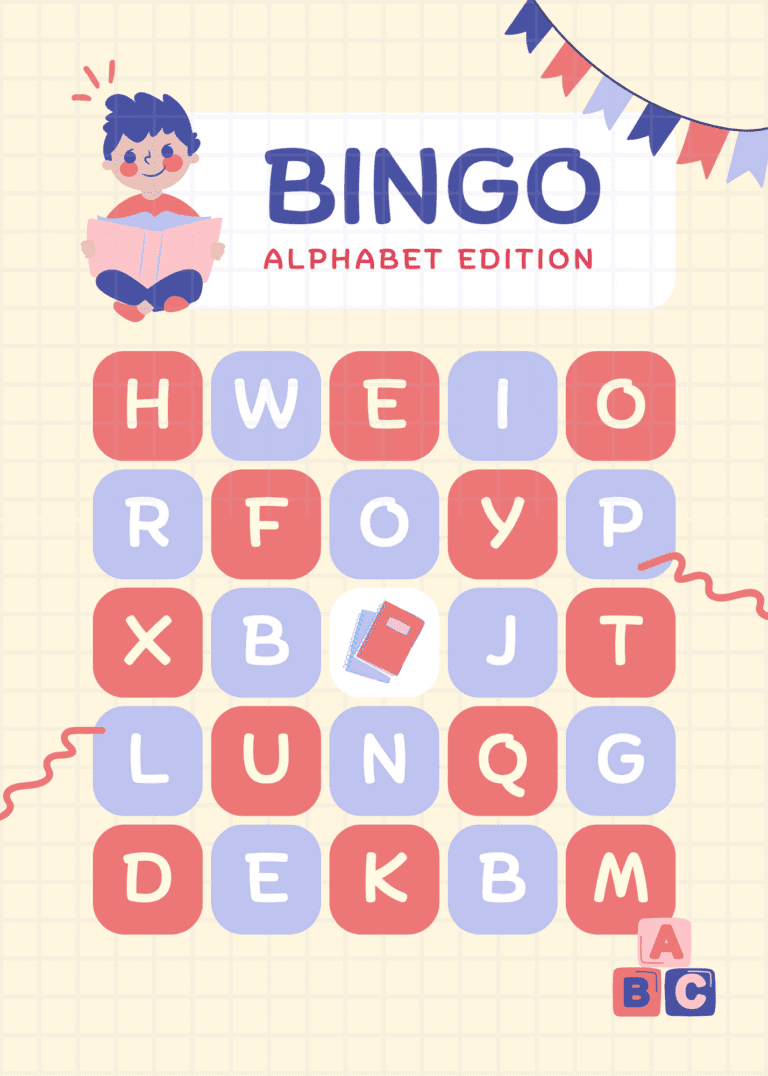
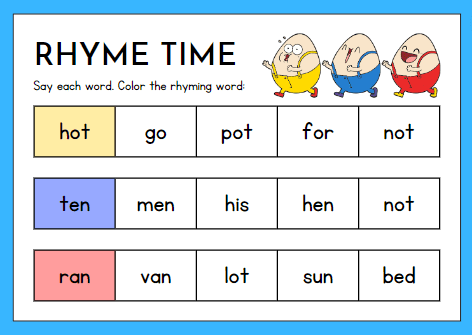
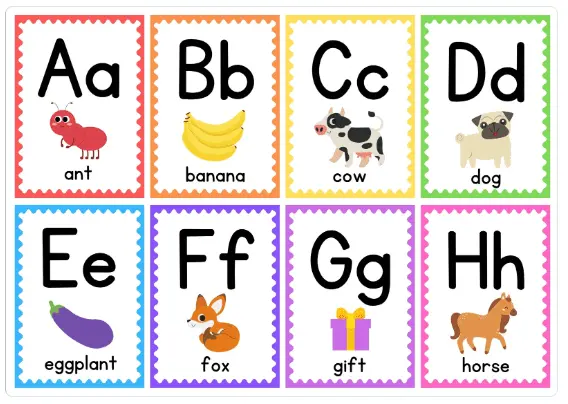
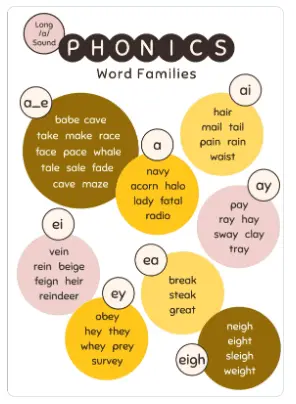
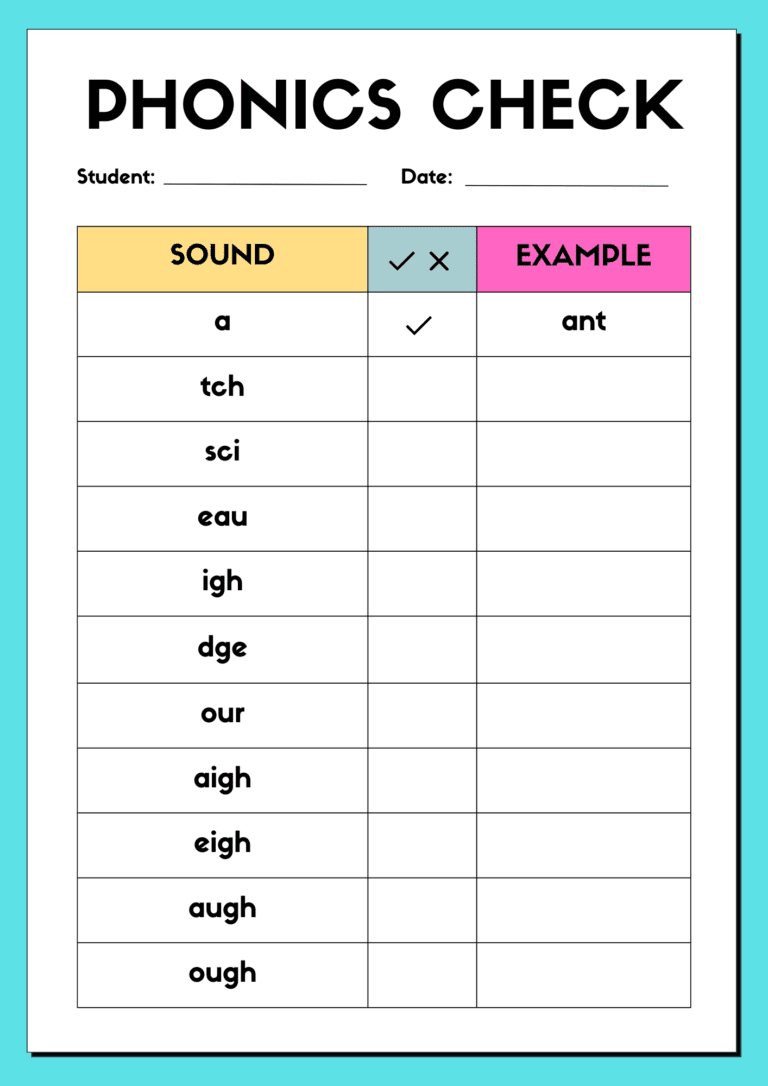
Exciting and Engaging Phonics Activities for Kids
Kids learn English first at home. You as parents can teach your kids some fun English lessons in your free time. By doing this, you contribute to your child’s language-learning journey. To make this learning process enjoyable and effective, we’ve curated a list of five exciting phonics activities that your kids will eagerly embrace. These engaging activities will not only enhance their English skills but also foster a love of language learning.
♠ Alphabet Bingo
Bingo gets a phonics twist with Alphabet Bingo! Create bingo cards with letters instead of numbers and call out words instead of digits. Your young learners will eagerly mark the letters they hear in each word, reinforcing their letter-sound associations. Plus, the element of friendly competition makes this a hit at home or in the classroom.
♠ Phonics Storytime
Engage your kids in a captivating storytelling session. Choose age-appropriate books that emphasize phonics principles. As you read aloud, encourage them to identify the words and sounds they’ve been learning. This interactive approach not only enhances their listening skills but also connects phonics to real-world language use.
♠ Rhyme Time Challenge
Turn phonics into a playful competition with a Rhyme Time Challenge. Give your kids a word, and ask them to come up with as many rhyming words as possible in a set time limit. The race against the clock adds an element of excitement and encourages them to think creatively while improving their phonemic awareness.
♠ Letter Sound Scavenger Hunt
Turn your phonics lesson into a thrilling scavenger hunt by hiding objects around the house that start with different letter sounds. Give your child a list of target sounds to find, and watch as they eagerly search for items like a “b” for ball or a “c” for cat. This activity not only helps children associate sounds with letters but also improves their vocabulary and observation skills.
♠ Phonics Memory Game
Create your own phonics memory game using index cards. On each card, write a letter and draw a picture of an object that starts with that letter sound. Shuffle the cards and place them face down on the table. Then challenge your child to find matching pairs by turning over two cards at a time. This activity enhances memory and letter-sound recognition while providing an enjoyable gaming experience.
♠ Word Family Bingo
Word families are groups of words that have the same ending sound but different beginning sounds. Prepare a bingo game board with different word families written in each square. Call out words one by one, emphasizing the ending sound, and have your child cover the corresponding word family on their board. This activity enhances phonemic awareness and builds familiarity with common word patterns.
♠ Musical Alphabet Relay
Transform your phonics lesson into a lively musical relay game. Write letters on separate pieces of paper and scatter them around the room. Play some upbeat music and have your child pick up a letter when the music starts. When the music stops, they must say the sound the letter makes or a word that starts with that letter, before running to find another letter. This game improves letter-sound correspondence and adds a physical element to learning.
Let Your Child’s Learning Be Fun!
Learning phonics can be an exciting journey for young learners when you incorporate engaging activities into their educational experience. These five thrilling phonics activities offer a balance of fun and learning, fostering a deep appreciation for the English language. By turning phonics into an adventure, you’ll help your kids develop essential language skills while creating lasting memories of their language-learning journey.
By incorporating these exciting and engaging phonics activities into your child’s English learning routine, you can make the process enjoyable and effective. Remember, learning should be fun, and these activities will not only stimulate your child’s curiosity but also accelerate their language acquisition. So, dive into these activities, and watch your young learners thrive as they embark on their exciting path to English proficiency. Watch as their confidence and English skills soar while having a blast along the way!



